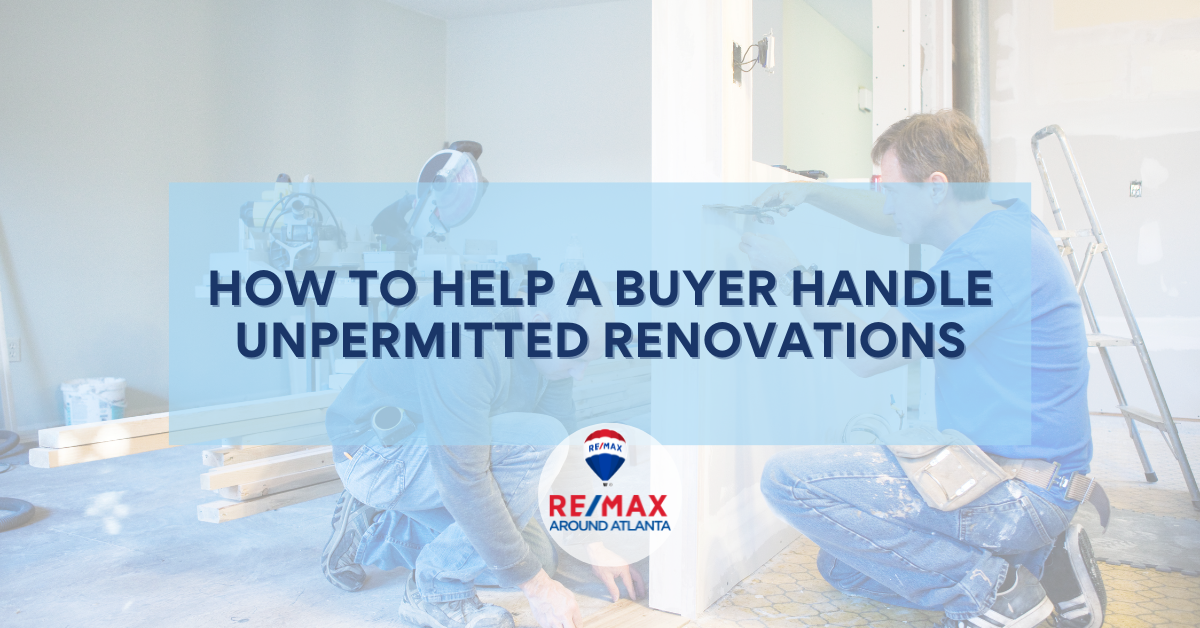|
If your buyer discovers unpermitted structures or renovations during their due diligence, they need to do some investigation before moving forward with their purchase. It’s possible that the appraiser will not be able to give value to the unpermitted structures in the home.
Unpermitted work refers to construction or renovations done without obtaining the necessary permits from local authorities. Cost is among the top reasons people skip obtaining permits for renovations. Not only the price of the permits but also not having to pay for the increased property tax assessment. Besides a surface-level inspection, how does the buyer really know that the area in question was built properly and is structurally and operationally safe? What about obtaining insurance? Calls to the local building department must be navigated delicately and could set off an investigation with possible fines levied against the seller. A building inspector isn’t going to simply go out and put his seal of approval on unpermitted work without further investigation. They will likely want walls opened up and structures torn apart to inspect. Legalizing non-permitted work typically involves retroactive measures to bring the construction or renovation into compliance with building codes and regulations. Legalizing home improvement projects usually starts by filing an application with the relevant building department or permitting authority. Depending on the jurisdiction, individuals may be required to pay fines or penalties for nonpermitted work before it can be legalized. Hiring a licensed contractor or a qualified professional is often recommended to ensure the work meets safety standards and the proper building code. Detailed documentation of the existing structure, including plans, drawings, photographs, and descriptions, may be required during the legalization process. Inspections and evaluations by building inspectors and other relevant professionals are commonly conducted to assess the quality and safety of the construction projects. Additional steps, like securing approval from homeowner associations or community boards, may be necessary for certain types of remodeling, such as illegal additions or alterations. Timeframes for legalizing work can vary depending on the project’s complexity and the permitting authorities’ workload. Once the necessary approvals are obtained and any fines or penalties are paid, local authorities consider the formerly nonpermitted work legal and officially recognized. If the buyer decides to move forward with the purchase without addressing the unpermitted work, they will likely need to address these issues when it’s time to sell the property.
1 Comment
Eric Benjamin
1/16/2024 03:36:39 pm
Thanks. Great article. So many older homes have this issue. Lots of due diligence needed. But rarely a deal breaker unless there’s some serious issue. I’ll point out what I see. Maybe the SPD is accurate and we go in with eyes wide open.
Reply
Leave a Reply. |
RMAAReal Estate News, Brokers Blog & More Categories
All
Archives
July 2024
|


 RSS Feed
RSS Feed